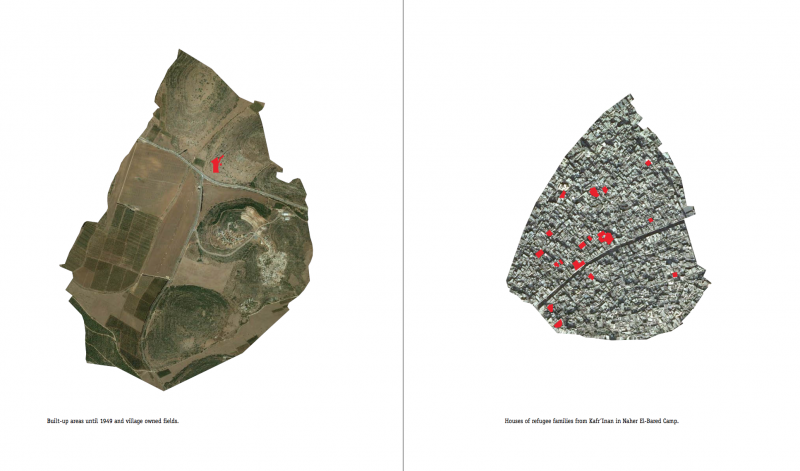The notion of “return” has de ned the diasporic and extraterritorial nature of Palestinian politics and cultural life since the Nakba in 1947-8. Often articulated in the “suspended politics” of political theology it has gradually been blurred in the futile limbo of negotiations.
Return is a political act that is both practiced at present and projecting an image into an uncertain future.
A varied set of practices that we would like to call “present returns” thus ground an ideal in present day material realities.
These practices necessitate the adoption of a stereoscopic vision that navigates the complex terrain between two places – the extraterritorial space of refuge and the destroyed site of origins.
Both the demolished villages and the refugee camps are extraterritorial spaces, not fully integrated into the territories that surround them. The former is de ned as “absentee property” and the latter as a “United Nations run area”, a sphere of action carved out of state sovereignty.
Refugee life is suspended between these two sites, always double.
Download File


